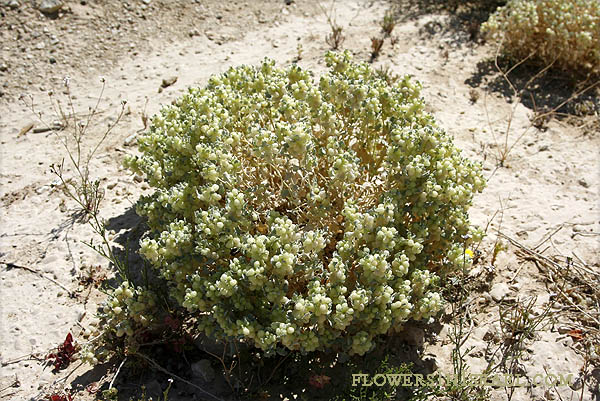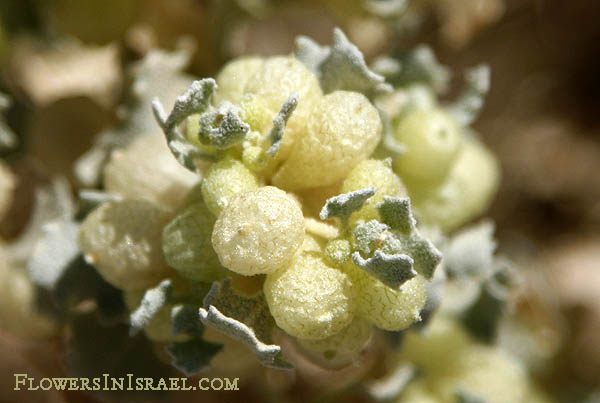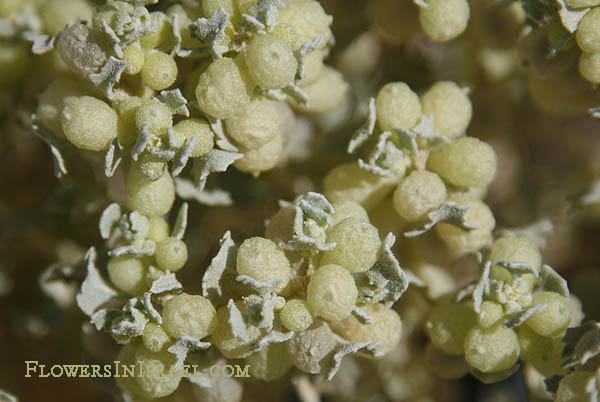Hebrew: מלוח ספוגי, Arabic: رغل كلي الإثمار
| Scientific name: | Atriplex holocarpa F.Muell. | |
| Synonym name: | Atriplex spongiosa F.Muell. | |
| Common name: | Pop Saltbush | |
| Hebrew name: | מלוח ספוגי | |
| Arabic name: | رغل كلي الإثمار | |
| Family: | Chenopodiaceae, סלקיים |

|
| Life form: | Annual | |
| Succulence: | bladderlike hairs - salt bladders - salt hairs - vesicular hairs | |
| Leaves: | Alternate, entire, smooth | |
| Flowers: | Green | |
| Flowering Period: | May, June, July, August, September, October, November | |
| Habitat: | Desert, Disturbed habitats | |
| Distribution: | Semi-steppe shrublands, Shrub-steppes, Deserts and extreme deserts | |
| Chorotype: | Australian | |
| Summer shedding: | Ephemeral |

Derivation of the botanical name: Atriplex , ατραφαξιϛ, ατραφαξυϛ, αδραφαξυϛ, ανδραφαξιϛ, a pot-herb like spinach, orach (Atriplex hortensis) from which the entire genus gets its name. holocarpa, holos, ολοϛ, whole, complete; carpos, καρποϛ, fruit; undivided fruit. spongiosa, Spongy, soft, or having the texture of a sponge. In Hebrew, in Chaldee, and in Syriac, the word Maluach, מלוח, implies a brackish or salt-tasted plant. In the Septuagint, it is rendered ,άλιμα, the halimus. The Hebrew word: מלוח, Maluach, comes from melech, מלך, salt, The translation of the Hebrew word 'maluach', מלוח (from melech, מלך, salt), is 'orache' and not 'mallow'.

|